09. 07. 2014
Zagreb, July 9, 2014 – Around a hundred of the most important and prominent decision makers in the region’s business world will meet early next week at a business conference entitled Summit100 Business Leaders of Southeast Europe. The event will take place on July 14 and 15 in Cavtat, Croatia, and will focus on the possibilities of mutual cooperation with the aim of strengthening the competitiveness of the countries’ economies.
The region’s business leaders will participate in roundtable discussions, grouped in seven economic categories, and identify possibilities of business cooperation within particular industries. Their proposals and conclusions will then be heard by the leaders of the Brdo-Brijuni process, who come from eight different countries in the region, and who will then hold a plenary meeting.
Announcing the discussion at Summit100, Agrokor’s Senior Executive Vice President Ljerka Puljić said the region had a long tradition as well as considerable experience and knowledge in producing and processing food products. “Those are definitely the strengths of this particular industry and are basis for the competitiveness in food production. The region has a possibility to produce considerable amounts of raw materials for the food industry as well as technological know-how in processing raw materials. The possible weaknesses that we all feel primarily include the size of the market, which is rather fragmented, small and with a low consumer potential, which is a huge challenge for the economy of scale. Therefore, any potentials or ways out should be looked for in applying knowledge and new technologies across the food production chain; however, without concentration, mergers or a unique regional market it will be difficult to fully utilize the potentials of this region and its food industry. Several positive natural predispositions are, unfortunately not enough to progress on the competitiveness rankings. On the contrary, because we are so small, we should be looking for a way out through mutual cooperation since it is the only thing that will enable economically justified investments in top technologies and people’s knowledge,” Ljerka Puljić concluded.
The biggest challenge of the SEE is to create a market with a population of over 25 million without any major or unnecessary obstacles to doing business in the region, Senior Director at A.T. Kearney Ivo Šimek believes: “We should allow and enable free movement of workforce and unique procedures for obtaining work permits for experts, cut customs charges and taxes, and improve the infrastructure significantly. Moreover, the entire SEE region should be presented as a unique and interesting tourist destination. That is precisely what the EU and the large companies are striving for – viewing the region integrally,” Ivo Šimek stressed.
